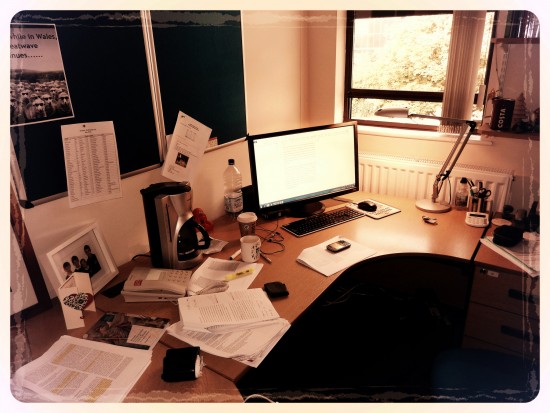
One of the hardest things about writing fiction is creating characters that are believable. Too many writers create characters that are just like themselves. While this seems like a way of “writing what you know,” too often it ends up creating a “Mary Sue” character. Mary Sue’s come across as poorly developed, shallow reflections of the author, not fully developed characters in their own right.
So how to create a character that is believable if the character is nothing like you and shares nothing of your experience? How do you create, for example, an accountant with five kids if you flunked basic math and hate kids? If you want to create good writing, the keys are research, observation, and personal experience. There are several ways to go about gathering the information needed to create a well-rounded, believable character. Here are some ideas.
Library, archive, and online research
If you’re trying to learn about an unfamiliar occupation, historical period (including mannerisms, clothing, occupations, etc.), medical condition, or location, simple research is the best place to start. And don’t just settle for a quick Google search. Spend some time looking at relevant documents/exhibits and immersing yourself in the information. Your character would be living this life, so don’t treat it lightly.
Shadow someone else
If you’re trying to craft an unfamiliar life, try to find someone who lives that life and shadow them. Writing about an investment banker? See if you can find one who will let you follow them for a day. Writing about a single mother who goes to night school? See if someone you know fits that description and will let you ride along for a day or two.
Work their job
See if you can do the actual work that your characters will be doing. Some jobs may be closed to you, but you may have some success getting close enough if you offer to volunteer. If your character is a rancher, ask if you can volunteer on a dude ranch for a few days. Or see if you can volunteer in a classroom to get closer to being a teacher. Volunteering in a hospital may get you close enough to the medical profession that you can create a believable doctor, even if you can’t be one yourself.
Interviews
Let’s say you need to understand how a serial killer works. Chances are, you’re not going to go to interview one. (You might, but probably not. And you’d better not become one.) What can you do? Interview people who work with/around serial killers. See if you can speak to a psychiatrist, cop, or coroner to get an idea of the motivations, methods, etc. of a serial killer. It’s always best if you can interview someone directly about their job or life but if you can’t, think of a way around that limitation. Speak to people who work with or around the subject you need to know about.
Visit their location
If your characters are living in an unfamiliar location, try to visit that location. You’ll get a better sense of the place, people, and opportunities/lifestyles if you go there rather than just relying on travel guides. Location visits are also useful for battlefields and historical settings, as well.
People watch
Watching people is one of the best ways to learn about them. Figure out where your character would go (for work, leisure, living, etc.) and go there yourself. Spend some time watching how to the people act, interact, and speak. What do they do? Where do they go? What do they talk about? What are they wearing?
Create a character profile
Spend some time filling in all the details you can about this person, even if those details won’t make it into the book. Appearance, age, medical history, traits, quirks, politics, religion, background, genealogy, education, relationships, life experiences, career, childhood experiences, residences, travels, and more are all things you should know. The more you know about your character, the more lifelike she will seem and the better able you’ll be to determine how she’d deal with the situations in your story. If you really want your character to come to life, consider giving him or her 10 traits that you never plan to reveal directly to the reader. These will come through in your writing even though you don’t directly share the details with the reader giving the character more richness.
Figure out what they want
Characters, just like real people, are driven by a variety of needs and forces. You’ll have to figure out what they want to gain from the story as a whole (win the war, secure the romantic relationship, kill the bad guy, etc.) as well as what they hope to achieve at each decision and action point within the larger story. Even something as mundane as, “Why is the character speaking to the landlord?” has a motivation behind it (or it should). Is she hoping to get a lower rent, or is she seeking information on property management? Does the landlord have a clue that your character needs to solve a mystery? Is she looking for a date? The motivations matter and can greatly change how a character acts in any given scene. Know their motivations and write accordingly.
Pay attention to speech
Your characters need to speak like real people, only without all the “um’s” and “likes” that go on in real conversation. That means that they might speak in a dialect, or with an accent. They might have a peculiar speech pattern due to mental illness or a tic. They may speak like a well-educated person or a poorly educated one. There will be gender differences, as well. Good dialogue that matches the characters is hard to pull off (go easy on the slang and dialect to avoid annoying the reader, but make it apparent that it’s there) but it’s essential. Otherwise, all your characters sound the same and that’s boring (not to mention difficult on the reader). Observe people who speak like your characters and try to capture that on the page.
Don’t deviate from their nature
If you’ve spent the entire book creating a needy, shy, retiring character, you cannot suddenly have that character fearlessly charge into battle and start slaying bad guys. You have to be true to the character. Doing otherwise feels forced and will turn readers off. If your character is going to change, it will not happen suddenly. You will have to spend time crafting that change so that when it finally happens, it feels believable.
Creating a believable character isn’t easy. You can’t skimp on the details and hope that people just buy into your character. You have to give readers reasons to care and believe and that can only come through careful thought, research, and observation. Just slapping a person on the page and hoping for the best will have your readers reaching for the next story. Don’t cop out and write a fictional version of yourself. Readers can tell when you’ve done this. Give your characters their own unique personalities, failings, and successes and readers will be more willing to read the story you’re telling.
(Photo courtesy of Frank Kelly)










